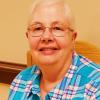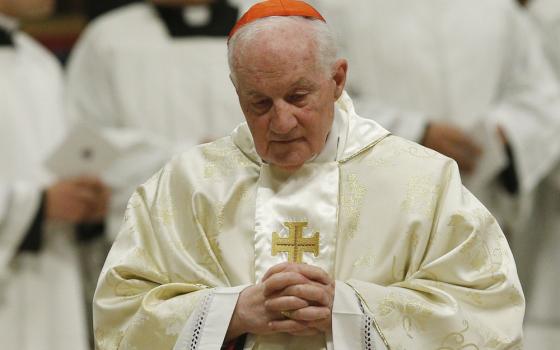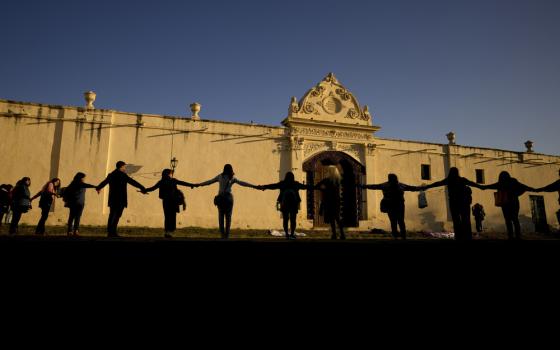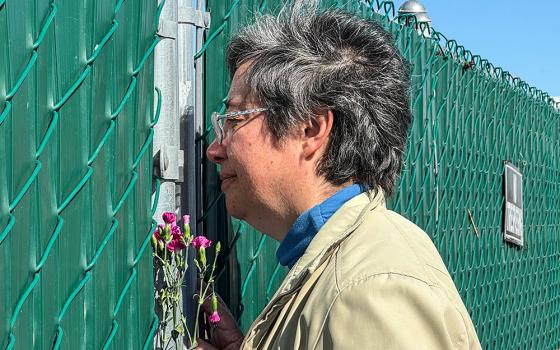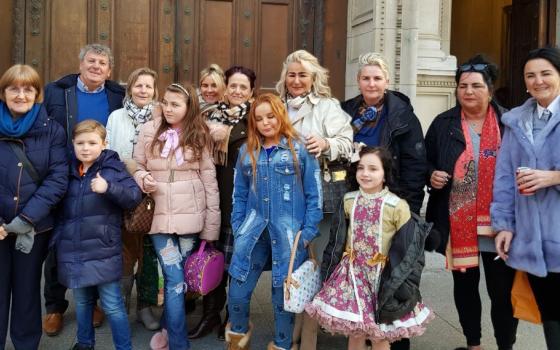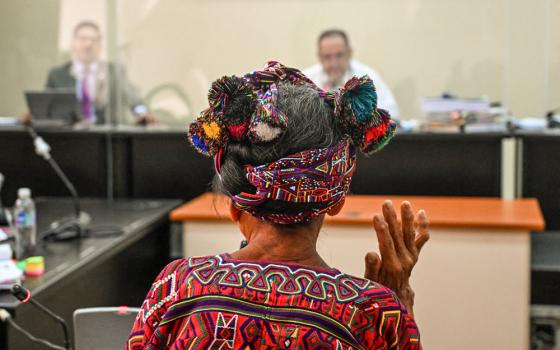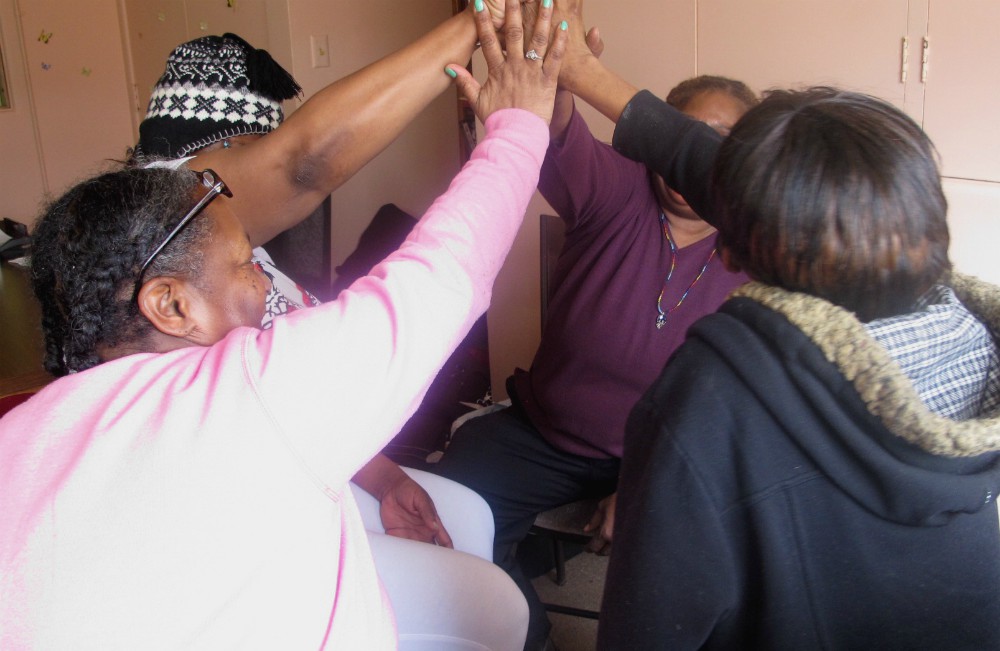
Small acts of kindness are so very powerful — having a home-cooked meal, being given a hand-woven scarf, receiving a hug, laughing together, dancing and really feeling heard. (Courtesy of Benedict Center)
As a member of one of the original founding faith-based partners — the Sisters of St. Francis of Assisi — I am proud of what several faith-based organizations have been doing to address the sex trade/trafficking in Milwaukee.
Our dream came true on Jan. 2, 2017. On Milwaukee's Near South Side, the door to Sisters Program South opened. To address the many crises of women struggling in trafficking and the street-based sex trade, one Lutheran church and four Catholic women religious congregations formed a faith-based partnership.
Along with the Benedict Center, the founding members were Ascension Lutheran Church (ELCA), the School Sisters of St. Francis, the Sinsinawa Dominicans, the Sisters of St. Francis of Assisi, and the Sisters of St. Joseph of the Third Order of St. Francis. Within the past year, the Congregation of Sisters of St. Agnes, the School Sisters of Notre Dame and the Sisters of Charity of St. Joan Antida have joined the cause. A member from each of these partners forms the Sisters Program South's advisory board, meeting bimonthly.
Sisters Program South has entered its fourth year of collaboration with its lead service agency, Benedict Center. The center advocates for change and provides alternatives based on its founding values of compassion, justice, action and transformation.
The goal of the Sisters Program is to create a citywide policy to provide a public health-based approach to helping women in the street-based sex trade and trafficking victims, rather than criminalizing their actions. When the Milwaukee Police Department diverts women to the Sisters Program instead of the women getting a ticket, fine or incarceration, they have the opportunity to change their lives and the lives of their family/children, and avoid future incarceration, fines or other judgments made by the criminal justice system.
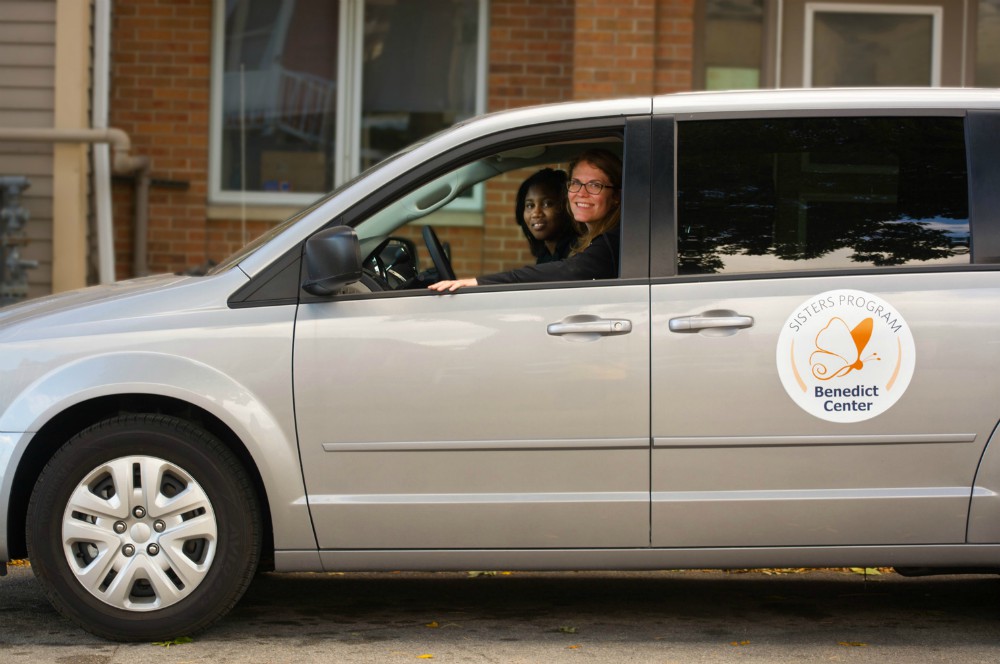
Impact 100 Greater Milwaukee provided funds for purchasing the Sisters Program van. (Courtesy of Benedict Center)
Hope House, an organization providing programs for families, has graciously rented us some space that includes a small kitchen, showers, a dedicated sleeping area with comfortable beds, a dining/living room area, offices and meeting room areas. Even though our location is on Milwaukee's south side, our space and services are available for women anywhere in the city. Impact 100 Greater Milwaukee provided funds for purchasing the Sisters Program van.
The daytime hours welcome women to drop in for food and drink, a quiet resting space, and facilities for laundry and personal hygiene. Sisters Program South staff provides crisis management, counseling, advocacy, case management, group education and support, and health/respite services.
We acknowledge the staff also needs support! To better assist them, a volunteer training program has recently been established for those interested in becoming involved with Sisters Program South.
We understand that homelessness is a primary barrier to exiting the sex trade. A 2015 Benedict Center survey of women engaged in street sex work found that 50% of them were either literally homeless, precariously housed, or at imminent risk of homelessness.
Responding to our clients' homelessness, Sisters Program is partnered with the Milwaukee Housing Division to assign a full-time housing navigator. With her assistance, we have greatly accelerated securing permanent and safe housing for the women.
Funding was also received to reopen Benedict Center's Sisters Program North, located on Milwaukee's Near North Side. Women are eager to have a full drop-in center return to their neighborhood, and Sisters Program is eager to be back.
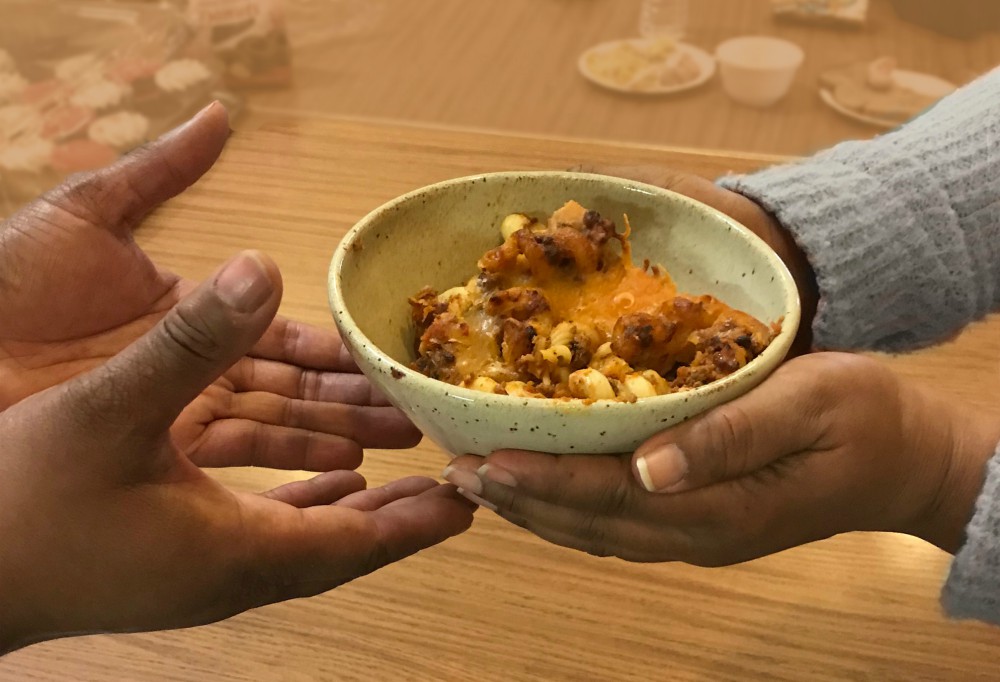
The Warming Room of Sisters Program South provides meals, showers and overnight lodging for eight women during the coldest months of December through March. (Courtesy of Benedict Center)
As an urgent response to our bitter winters, Sisters Program South opened as a site for a Warming Room — a welcomed relief from the bitter cold. Sisters Program South can be open and provide warm meals, showers, and overnight lodging for eight women during the coldest months of December through March.
In 2019, through invitations and word of mouth, 171 women dropped in for a total of 2,293 visits. We also provided 84 hot dinners for up to 720 overnight stays. A process was developed so volunteers could drop off homemade hot suppers or have meals donated by local restaurants. The generosity of many people continues to bless Sisters Program South.
Melinda Hughes, Sisters Program director, recently shared the 2019 data for the program. She communicated the following: "Our Street Outreach Specialists made 622 contacts with women on the streets: 346 on the North side and 276 on the South side [of Milwaukee]. In a year's time, we offered approximately 248 hot breakfasts and 196 hot lunches, plus over 3,000 bag lunches distributed by outreach and our drop-in staff. ... The Program remains a trusted resource to our clients."
Time, space and support are necessary in order for women to make significant changes in their lives. In all instances, Sisters Program South has the honor to assist participants in creating their own plans to guide them toward a healthier and safer life — whether it's coming to the drop-in center for the first time, to begin detox or start the process toward inpatient treatment, to work with the housing navigator to find safe housing, to find employment, or to enroll in GED classes.
Advertisement
We also support women in the midst of heartbreak and trauma — losing a friend overnight to an overdose, being beaten and assaulted by partners, traffickers or customers. These are compounded by external barriers to progress. For instance, a recent client was so excited about an apartment opening only to be crushed that the landlord said no, due to her past record.
In truth, the healing path for these women is one that requires a patchwork quilt of multivaried supports and services. Therefore, these healing truths are the foundation of Sisters Program South:
In order to heal abuse, we need to restore a sense of safety.
To heal neglect, we need to experience compassionate attention.
To heal stigma, we must release shame and reclaim dignity.
And to heal abandonment, we need to experience loving connection and belonging.
Small acts of kindness are so very powerful — having a home-cooked meal, being given a handwoven scarf, receiving a hug, laughing together, dancing, and really feeling heard.
Pope Francis, in his 2015 letter on mercy, reminds us of the importance of extending mercy to our sisters and brothers: "Day after day, touched by [God's] compassion, we also can become compassionate towards others." Francis' call to mercy and compassion has come to life in a transformative program that is addressing the underlying needs of women in the street sex trade/trafficking, who have been victimized in so many ways. By so doing, neighborhoods — impacted by the street sex trade — can be transformed.
[Sr. Celia Struck is the archivist for her congregation, the Sisters of St. Francis of Assisi in St. Francis, Wisconsin. She also serves as the secretary of the Sisters Program South Advisory Board.]
